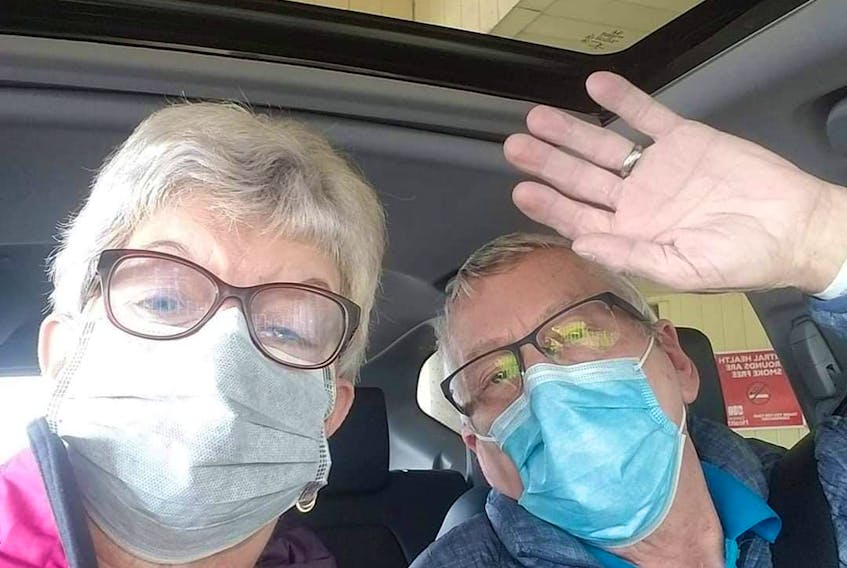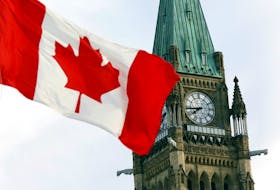ST. JOHN'S, N.L. — “Facebook shaming has replaced tarring and feathering and snitch lines are making so many ecstatic.”
– comment on Twitter
Imagine having a potentially serious disease and being ridiculed, scolded and even threatened.
It seems unthinkable, but it has happened all too often during the COVID-19 pandemic, augmented by that modern replacement for tarring and feathering: social media.
Health officials and politicians in Canada have pleaded with citizens to be caring and tolerant of those who have the disease or may have been exposed to it.
“We will continue to see cases, and it is important that people feel safe and supported to come forward to be tested,” Newfoundland and Labrador’s Chief Medical Officer of Health Dr. Janice Fitzgerald said during a briefing in July. “Testing is an important tool for public health. It helps us to identify cases and their contacts, so we can stop transmission of the virus beyond a small cluster of cases.”
Yet politicians themselves can unwittingly promote the pile-on attitude in the words they use.
The most glaring example might be New Brunswick Premier Blaine Higgs who, in May, publicly scolded an “irresponsible medical professional” who had allegedly spread COVID-19 in the Campbellton area by crossing the border into Quebec to retrieve his young daughter and not isolating upon return.
Dr. Jean Robert Ngola’s name leaked on Facebook within an hour of being told he tested positive. The premier’s remarks came in the early afternoon, and two hours after that Ngola was suspended from his duties.
An hour later he was informed his daughter was positive, and by the end of the week he was under investigation by the RCMP.
Because he is a Congalese-Canadian, some of the online invective against Ngola came as racist attacks. He was told to “go back to Africa” and even told he should be “lynched.”
"I have the fear in my belly. I don't know what can happen," Ngola told the CBC’s Judy Trinh.
"It's more than racism — they put my life in danger."
Trinh’s interview was part of a “Fifth Estate” investigation that also uncovered evidence Ngola was likely not “patient zero” for the subsequent cluster that killed two people. Now working in Quebec, Ngola has hired a lawyer.
Another COVID-related case involving a Congalese national is more tangly.
Protesters in Charlottetown last week charged that the jailing since July of Javan Mizero Nsangira, a 22-year-old international student, constitutes a case of systemic racism.
They said the media’s continued use of his name is contributing to the problem.
However, Nsangira is facing charges other than those related to violating health orders. Prosecutors say his girlfriend called 911 alleging domestic violence.
Instilling fear
Early in the pandemic, health officials were especially fervent in their warnings to follow pandemic rules.
Newfoundland and Labrador Health Minister Dr. John Haggie often uttered stern and occasionally pithy admonitions against anyone who might consider stepping out of line.
Many have used it as routine justification for online vigilantism, but Haggie has repeatedly pleaded for people not to use social media as a means for rumour mongering and harassment.
Last week, a mayor on Newfoundland’s west coast was found in violation of privacy laws for his actions in late March when pandemic paranoia was at a peak.
Howley’s Wayne Bennett revealed the names of certain residents and their travel history through Facebook and in an email to town councillors.
“Many people are understandably concerned about their health and there is pressure on public bodies to establish and enforce effective public-health measures in the face of a highly infectious virus,” Privacy Commissioner Michael Harvey wrote in his report.
However, he wrote, it was beyond the scope of the mayor’s authority to reveal personal information.
Bennett said Wednesday he accepts the findings of Harvey’s report.
In July, a resident of Glovertown in central Newfoundland posted a plea on Facebook after a man returning from work in the U.S. tested positive and passed the coronavirus on to two immediate family members.
"We have been informed by several health officials that we did nothing wrong and (are) continuing to do everything the way we should!” the family member said. “Anyone who knows us knows how cautious we are and have been just we were the unlucky ones in a situation and we are trying to cope with this scary situation as much as we can.”
She later removed the post to further preserve privacy.
In April, Garry Payne was on death’s door in a Grand Falls-Windsor hospital after a case of COVID-19 took a turn for the worse.
To protect her parents, who both had the disease, his daughter, Katrina Jeans, wrote on Facebook that her father had pneumonia. However, when the chief medical officer announced the first two cases of COVID-19 in the central region were from travel, she said, some people started a “witch hunt” to find out the identities of the infected pair.
“We almost felt like criminals in hiding,” her mother, Doreen, told The Telegram’s Rosie Mullaly. “Did I try to catch this virus? No. But people made it out like we did.”
Empathy needed
Experts say the power of social media turns dark when it reinforces fears and prejudices people already possess.
“A particularly poignant illustration is a viral WeChat rumour that a particular Chinese restaurant in Canada employed someone with COVID-19 and that health officials had closed the restaurant,” Toronto sociologists S. Harris Ali and Fuyuki Kurasawa wrote in The Conversation in March. “The restaurant lost 80 per cent of its revenue.”
In a 2016 Pyschology Today article about online trolling, California psychologist Saul Levine said online comments have become increasingly vile and judgmental, even over the most innocuous events.
“The important concept of ‘empathy’ is relevant here,” Levine wrote. “When we walk in the shoes of others, we are seldom as condemnatory as we are from afar. When we exhibit empathy, we are much more understanding, sympathetic and forgiving.”
Newfoundland and Labrador Premier Andrew Furey was more blunt during a media availability last month.
“Social media harassment is unacceptable, and as a society we need to move away from that,” he said.
“That’s unacceptable behaviour where we are right now. It’s certainly unacceptable in the case of a pandemic, and it should not be tolerated in any way, shape or form.”
Peter Jackson is a Local Journalism Initiative reporter covering health care for The Telegram.









